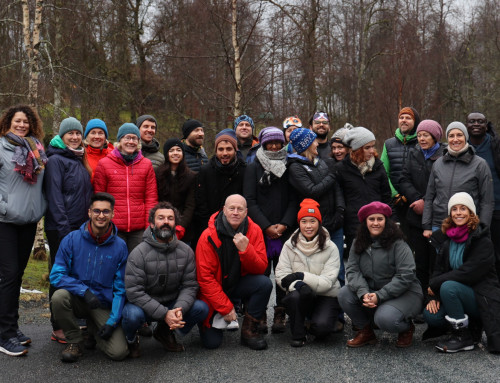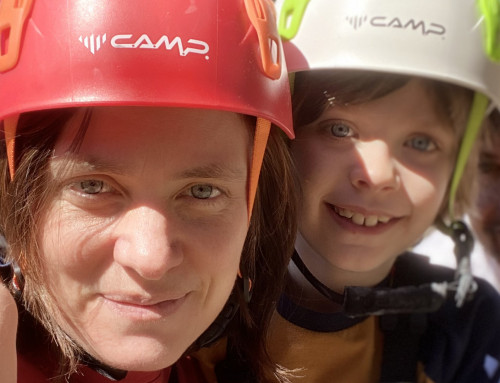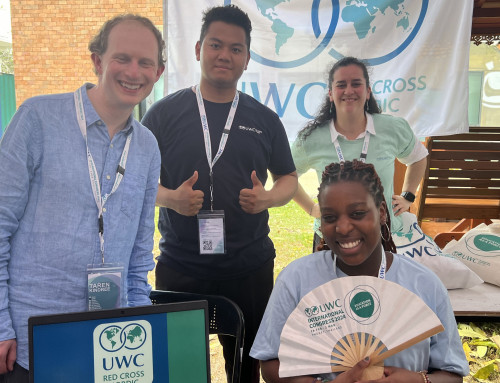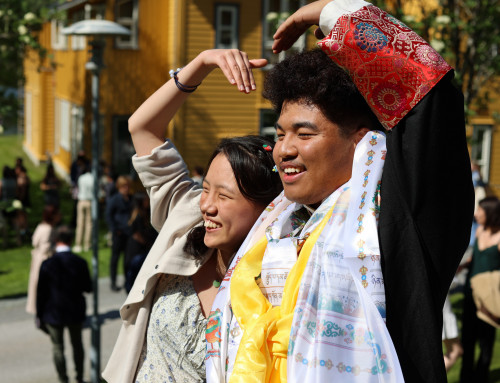When asked for his name as he stepped into the Bergen airport terminal in July, Argentinian first year Elias Rodriguez could only give a blank stare in response. This story is typical for new students who come to UWC without much English experience, which is why the 3-week long Summer Course is an essential start to their UWC careers. Although a week and a half is not much time in most places, here at UWC Red Cross Nordic the summer course makes a huge difference to students’ comfort with and comprehension of English. Students like Elias still have to make a lot of progress, but already they are able to hold basic conversations and form friendships with students using English as a common language. In the dozen or so years it has been operating, the summer experience has been shown to provide a strong foundation which enhances academic and social success once the school year starts.
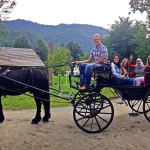 Through morning classes and afternoon activities, the Summer Course is an immersive experience with the English language and with the busy lifestyle of UWC. The day begins with breakfast, followed by 4 English lessons on various themes, taught by Fredskorpset volunteers (young Norwegians taking part in an exchange project administered by the College) with guidance from teacher Peter Wilson and former RCN student Madeleine Benishek. After lunch, the 20 students are kept active with structured activities run by a group of UWC alumni and volunteers. These activities range from drama games to hiking to dodgeball tournaments, as well as more group-oriented activities such as treasure hunts and talent shows. Even though the content of the activities vary, they all lead to similar conclusions: stronger friendships, familiarity with the UWC lifestyle, and new skills and hobbies.
Through morning classes and afternoon activities, the Summer Course is an immersive experience with the English language and with the busy lifestyle of UWC. The day begins with breakfast, followed by 4 English lessons on various themes, taught by Fredskorpset volunteers (young Norwegians taking part in an exchange project administered by the College) with guidance from teacher Peter Wilson and former RCN student Madeleine Benishek. After lunch, the 20 students are kept active with structured activities run by a group of UWC alumni and volunteers. These activities range from drama games to hiking to dodgeball tournaments, as well as more group-oriented activities such as treasure hunts and talent shows. Even though the content of the activities vary, they all lead to similar conclusions: stronger friendships, familiarity with the UWC lifestyle, and new skills and hobbies.
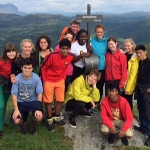 Some of the first friendships at UWC are formed at the Summer Course. Instead of throwing the students into the IB programme right away, in a sea of 200 students, the Summer Course helps new students settle in and adapt to a new way of life without the added pressure of academics. With an intimate group and the strong support of volunteers and staff, the challenges of meeting new people and adapting to a new environment are overcome with greater ease. Ultimately, the Summer Course provides a bridge between students’ individual backgrounds and a shared life-changing experience.
Some of the first friendships at UWC are formed at the Summer Course. Instead of throwing the students into the IB programme right away, in a sea of 200 students, the Summer Course helps new students settle in and adapt to a new way of life without the added pressure of academics. With an intimate group and the strong support of volunteers and staff, the challenges of meeting new people and adapting to a new environment are overcome with greater ease. Ultimately, the Summer Course provides a bridge between students’ individual backgrounds and a shared life-changing experience.
(Here is a video overview of the 2012 English Summer Course: https://www.youtube.com/watch?v=-Wb3QjaJAFI)


